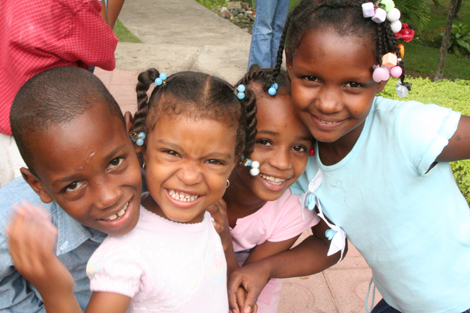Why We Do This
Over 275 million people are estimated to have moderate to profound hearing loss in both ears worldwide. 80% of the hearing-impaired live in low and middle-income countries.
The impact of a hearing loss or a hearing-impairment is especially harmful in children because it delays cognitive development which usually results in slow progression of speech, language, education, and social integration.
Hearing loss is consistently ranked as one of the 10 most significant health conditions worldwide in terms of cost and human suffering. Adults with hearing deficiencies have greater difficulty obtaining, performing, and retaining employment.
50% of deafness and hearing impairment is avoidable through education, prevention, early diagnosis and appropriate management. The remaining 50% of hearing impairment in developing nations can be addressed through treatments and the application of emerging technologies.
Damaging effects of ear infections have been significantly reduced with drugs and surgery, which are not readily available to developing nations.
Why Dominican Republic
42.4% of the Dominican Republic population live below the poverty line. The economy of the country is characterized by a marked income inequality; the poorest half of the population receives less than one-fifth of GDP, while the richest 10% enjoys nearly 40% of GDP.
The access to medical treatment is relatively low. The high cost of private health programs and the low health expenditure by the government leads to find people who had have to live with an ear infection for long periods of time this has resulted in things like not find a job or not have a normal school process.
The Future
We expect to build a new-born screening program in the Dominican Republic. The early detection is a key factor for a successful treatment. Implementation of this program which allows Project Ear to identify the problem in a quick and efficient way. We also hope to bring screenings into schools so that children with a disorder or disease that were overlooked at birth may receive help before the problem gets out of hand.
The sustainability of our project is one of our main concerns. We want to make sure that our efforts are not in vain so that expansion does not hinge on the time available to the American surgical team. The erection of a hospital in the Dominican Republic is necessary as a it will serve as a home base for ear, nose, and throat healthcare. Not only will there be a concrete space for the local underserved population to receive continuous medical treatment, but the hospital will also allow the Project Ear team to educate international residents so that they can take their knowledge with them back to their home countries.
